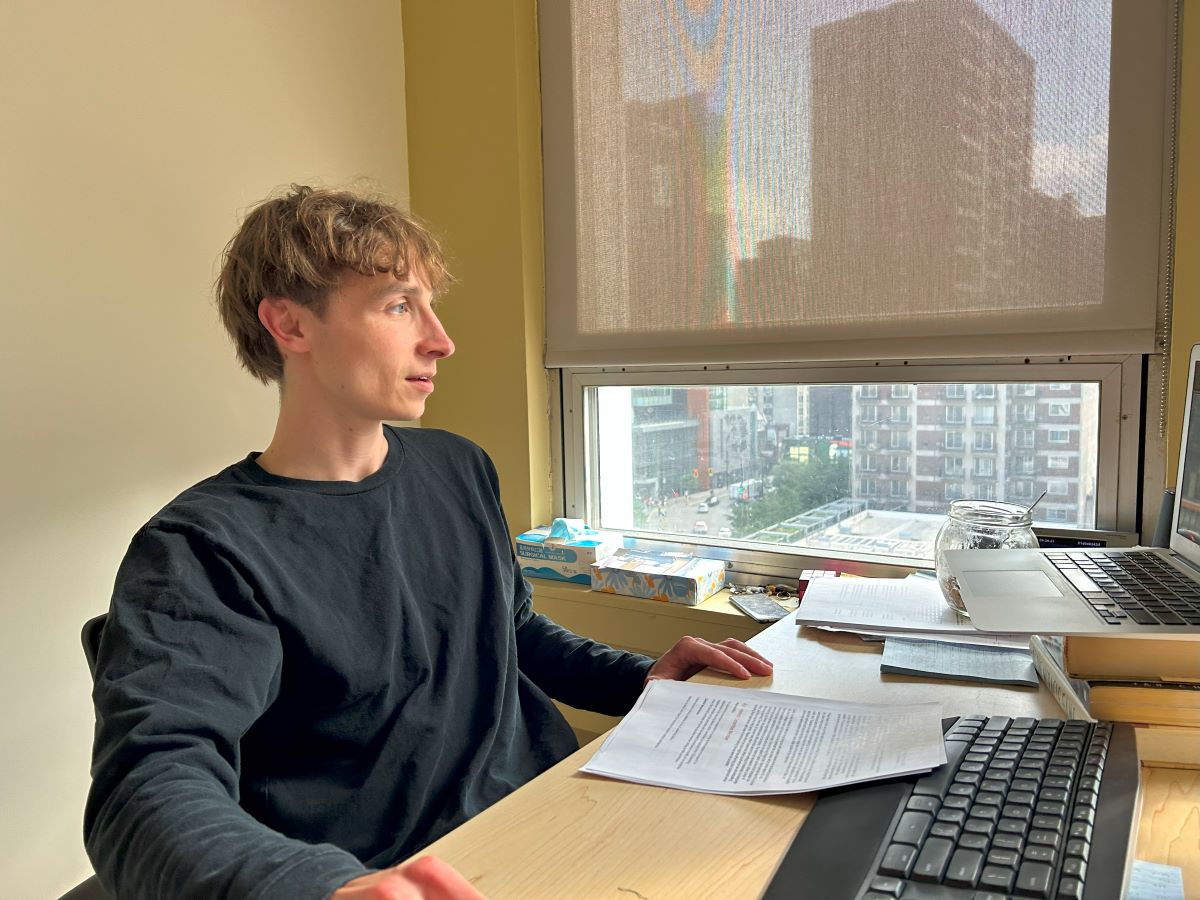How a political science student is creating a fair and engaging CSU for Concordia students.
In the wake of a new school year, the Concordia Student Union (CSU) is starting fresh with new members on their team. Harley Martin may not be one of them since he knows his way around the CSU, but now he has a new opportunity in his hands.
Harley Martin is a history and political science student and the CSU’s new General Coordinator (GC). Last year, he was formerly the Student Life Coordinator of the CSU, until he was later appointed as the GC.
“I feel every day I’m learning new things that I wasn’t aware of before, but having a year of experience to kind of see how things work, know people, know where to look for the answers all that is really helpful,” said Martin.
Following a scandal last year with the former GC, Martin has his eyes on having a steady communication between the members, making sure no idea or issue is ignored.
“We cannot have any silos of information, so I just try and share everything with everyone like on the team,” he told The Concordian.
Martin sees a more engaging and interconnected CSU staff this year. As the GC, he makes sure that everyone on the team is doing their work, is comfortable in their environment, and has all of the information they need for their projects. It is one of the most important tasks of his job and it helps him create deeper relationships with the team.
“Everyone is really fun and does their work, but also it’s fun to hang out when we have free time and we’re sitting here for a minute. So, it has a nice feel to it which is good because you need your environment to be pleasant,” said Martin.
Hannah Jackson is an art education student and the CSU’s External Affairs and Mobilization Coordinator. She is responsible for Concordia’s external connections for the CSU’s campaigns throughout the year. During COVID-19, she did not have the chance to be as involved in Concordia life as she had thought. With school being in-person again, she can now flourish in her passion for activism at the CSU and share her craft fiercely with her supportive colleagues.
“I found myself very supported not just by [my team] signing off on what I do, but also wanting to talk to me about and giving me their ideas, so that’s been really positive so far,” said Jackson.
Tanou Bah is a sociology student and the CSU’s new Student Life Coordinator. She was previously the Social Media Coordinator and she worked alongside Martin last year. Bah admires Martin’s perseverance to have a reliable team in the new year and she continues to see that in his work ethic.
“You’re only here for a year and then you’re gone and so a lot of the projects that were started can sometimes fall through. That’s why it’s great to have Harley because he knew what was happening last year and we can continue to push for that,” said Bah.
Harley Martin has one year left at Concordia and wants to continue his involvement one last time with the CSU by doing it right. He is hoping for more student involvement this year through tabling at the Loyola and downtown campuses next week, as well as by creating a safe environment at the CSU.
